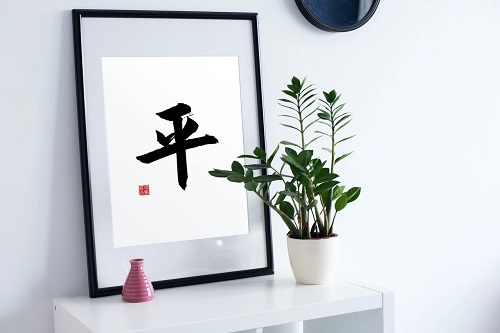The kitchen god is one of the most recognized gods in the Chinese household.
Even when a family does not believe or practice feng shui, there’s still every chance that they acknowledge the kitchen god in one way or another and make an effort to appease him.
This because the kitchen god is a widely recognized figure in both culture and religion as a domestic god.
He is simply referred to as zao shen (灶神) or zao jun (灶君), which literally translates to stove god or stove master. And the stove is implied to be the kitchen.
The kitchen is his domain and he would not hesitate to unleash chaos on the house should residents do anything that angers him.
Legend of the kitchen god
The origins of zao shen is mostly tied to 2 mythical stories.
The first story is about a man named Zhang Lang who fell in love with a young women behind the back of his righteous wife. After leaving his wife, his act of betrayal was met with the heavenly punishment of a tough life. After becoming blind and having his lover leave him, he resorted to begging. He then came across his former wife who offered him food and shelter but did not recognize her. But he proceeded to tell her of his story how remorseful he felt towards his former wife. It was then that his vision was restored and saw his wife. Overcome with shame, he threw himself into the kitchen hearth and died.
The second story is about a farmer named Zhang Sheng who lived a simple life with his loving and loyal wife. When an extended drought was followed by a huge flood, all his crops was destroyed. He then had to resort to new ways to generate an income for the family. Not wanting his wife to suffer from poverty and living a very hard life, he sent her to go back and live with her parents. Years passed and he was still struggling with his finances. Then one day he came across a house and found out that she was living such a comfortable life. Feeling ashamed that he was not able to provide for her like how a husband should, he jumped into the firing stove and died. The Jade Emperor was moved and made him the kitchen god.
While the origins of zao shen has no consensus, a story about him continues to be told to children and remains deeply embedded in folklore.
This story is about a decent man named Yin Zifang who was making a meal for his family in the kitchen one day and the kitchen god appeared. Recognizing the deity, Yin cooked up a hearty meal to welcome him. Zao Shen then vanished as soon as he finished the delicious meal that was prepared. Yin then enjoyed a dramatic upturn in fortunes and eventually became a very wealthy man. Even his son did well in the national exams and became a government official. This is one of the main stories that led to the kitchen god being associated as a god of wealth.
There’s also an amusing story about the mother of Zhu YuanZhang who was the founder of the Ming dynasty. While cooking in the kitchen one day, a magpie intruded the premises and told the mother that Zhu was destined for greatness and would rule the country for 100 million years. She rubbished the magpie’s claims and slammed the ladle on the stove to chase the bird away. She said that it would be good enough for the rule to be 276 years. How she picked that number out of thin air was anyone’s guess. But the disturbed kitchen god appeared and told her that if she preferred 276 instead of millions of years, then 276 it would be. The Ming dynasty lasted 276 years in recorded history.
There are festivals that are coined in to celebrate the kitchen god. But the exact dates can vary in different regions.
But during important festivals such as Chinese New Year, households frequently make offerings to the kitchen god as a gesture of appreciation.
It is also a tradition to make offerings on the 3rd day of the eighth lunar month which is supposed to be his birthday, and the twenty-third day of the twelfth lunar month which marks his annual return to heaven.
The 23rd day of the 12th lunar month has q big significance with regards to the kitchen god in Chinese culture. This is also a day that is known as preliminary eve (小年).
For households that put up images of the kitchen god, this is also when his image is taken down and burned so as to send him on his annual return voyage to heaven to report to the Jade Emperor. A new one would then be put up to replace the one that has dissipated.
Even government officials and military officers of some dynasties were required to conduct rituals to worship the kitchen god.
Customs and taboo
The offerings made are often basic foodstuff and fruits such as sweets, apples, glutinous rice balls (汤圆), etc.
The belief or superstition for such sweet treats are meant to give the deity sticky lips so that he would not be able to report bad things to the Jade Emperor. The more tasty stuff he eats, the more sweet talk he would engage in.
Depend on where you read the information, the god’s return to earth is scheduled for either Chinese New Years’s Eve or on the 4th day of the first lunar month.
Elaborate rituals are also conducted by households to welcome him back with the blessings brought from heaven.















